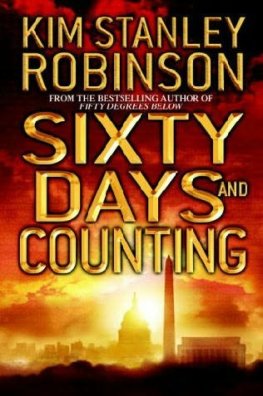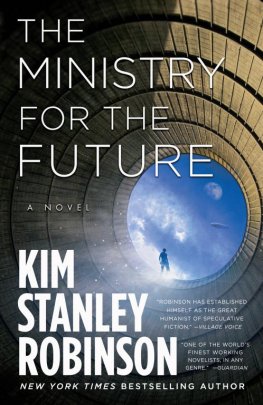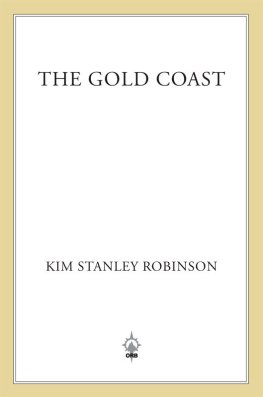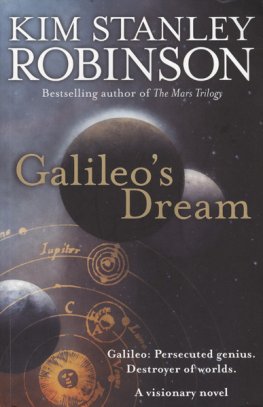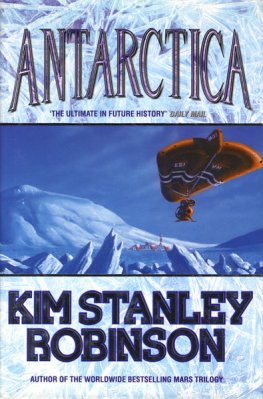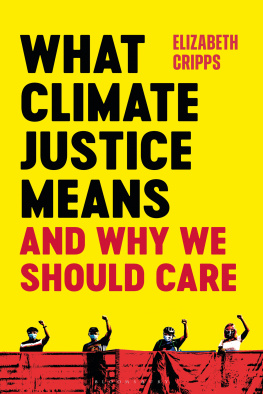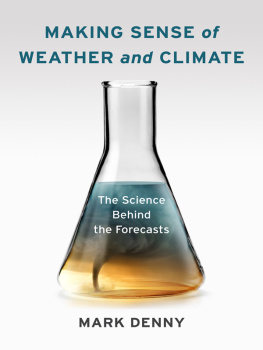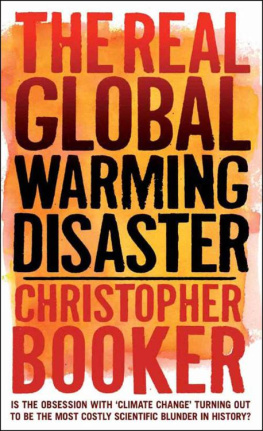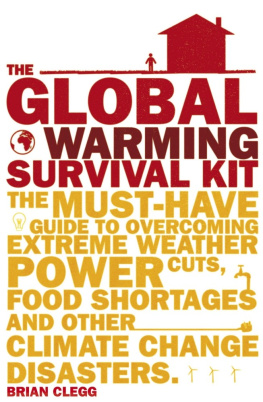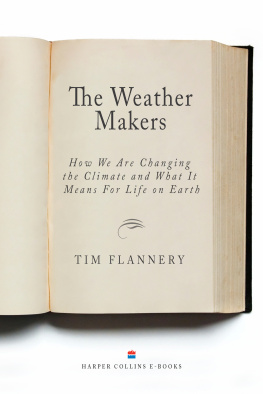Kim Stanley Robinson
SIXTY DAYS AND COUNTING

I. A NEW REALITY

I believe the twenty-first century can become the most important century of human history. I think a new reality is emerging. Whether this view is realistic or not, there is no harm in making an effort.
The Dalai Lama, November 15, 2005, Washington, D.C.
Why do you do what you do?
I guess because we still kind of believe that the world can be saved. We? The people where you work?
Yes. Not all of them. But most. Scientists are like that. I mean, were seeing evidence that we seem to be starting a mass extinction event.
Whats that?
A time when lots of species are killed off by some change in the environment. Like when that meteor struck and killed off the dinosaurs.
So people hit Earth like meteor.
Yes. Its getting to be that way for a lot of the big mammals especially. Were in the last moments already for a lot of them.
No more tigers.
Thats right. No more lots of things. Somost of the scientists I know seem to think we ought to limit the extinctions to a minimum. Just to keep the lab working, so to speak.
The Frank Principle.
(Laughs.) I guess. Some people at work call it that. Who told you that?
Drepung tell me. Saving world so science can proceed. The Frank Principle.
Right. Wellits like Buddhism, right? You might as well try to make a better world.
Yes. So, your National Science Foundationvery Buddhist!
Ha ha. I dont know if Id go that far. NSF is mostly pragmatic. They have a job to do and a budget to do it with. A rather small budget.
But a big name! NationalScienceFoundation. Foundation means base, right? Base of house?
Yes. It is a big name. But I dont think they regard themselves as particularly big. Nor particularly Buddhist. Compassion and right action are not their prime motivation.
Compassion! So what? Does it matter why, if we do good things?
I dont know. Does it?
Maybe not!
Maybe not.

BY THE TIME PHIL CHASE WAS ELECTED president, the worlds climate was already far along the way to irrevocable change. There were already four hundred parts per million of carbon dioxide in the atmosphere, and another hundred parts would be there soon if civilization continued to burn its fossil carbonand at this point there was no other option. Just as Franklin Delano Roosevelt was elected in the midst of a crisis that in some ways worsened before it got better, they were entangled in a moment of history when climate change, the destruction of the natural world, and widespread human misery were combining in a toxic and combustible mix. The new president had to contemplate drastic action while at the same time being constrained by any number of economic and political factors, not least the huge public debt left deliberately by the administrations preceding him.
It did not help that the weather that winter careened wildly from one extreme to another, but was in the main almost as cold as the previous record-breaking year. Chase joked about it everywhere he went: Its ten below zero, arent you glad you elected me? Just think what it would have been like if you hadnt! He would end speeches with a line from the poet Percy Bysshe Shelley:
O, Wind, if Winter comes, can Spring be far behind?
Maybe it can, Kenzo pointed out with a grin. Were in the Youngest Dryas, after all.
In any case, it was a fluky winterabove all windyand the American people were in an uncertain state of mind. Chase addressed this: The only thing we have to fear, he would intone, is abrupt climate change!
He would laugh, and people would laugh with him, understanding him to be saying that there was indeed something real to fear, but that they could do something about it.
His transition team worked with an urgency that resembled desperation. Sea level was rising; temperatures were rising; there was no time to lose. Chases good humor and casual style were therefore welcomed, when they were not reviledmuch as it had been with FDR in the previous century. He would say, We got ourselves into this mess and we can get out of it. The problems create an opportunity to remake our relationship to nature, and create a new dispensation. Sohappy days are here again! Because were making history, we are seizing the planets history, I say, and turning it to the good.
Some scoffed; some listened and took heart; some waited to see what would happen.
As far as Frank Vanderwals personal feelings were concerned, there was something reassuring about the world being so messed up. It tended to make his own life look like part of a trend, and a small part at that. A hill of beans in this world. Perhaps even so small as to be manageable.
Although, to tell the truth, it didnt feel that way. There were reasons to be very concerned, almost to the edge of fear. Franks friend Caroline had disappeared on election night, chased by armed agents of some superblack intelligence agency. She had stolen her husbands plan to steal the election, and Frank had passed this plan to a friend at NSF with intelligence contacts, to what effect he could not be sure. He had helped her to escape her pursuers. To do that he had had to break a date with another friend, his boss and a woman he lovedalthough what that meant, given the passionate affair he was carrying on with Caroline, he did not know. There was a lot he didnt know; and he could still taste blood at the back of his throat, months after his nose had been broken. He could not think for long about the same thing. He was living a life that he called parcellated, but others might call dysfunctional: i.e., semi-homeless in Washington, D.C. He could have been back home in San Diego by now, where his teaching position was waiting for him. Instead he was a temporary guest of the embassy of the drowned nation of Khembalung. But hey, everyone had problems! Why should he be any different?
Although brain damage would be a little more than different. Brain damage meant something likemental illness. It was a hard phrase to articulate when thinking about oneself. But it was possible his injury had exacerbated a lifelong tendency to make poor decisions. It was hard to tell. He had thought all his recent decisions had been correct, after all, in the moment he had made them. Should he not have faith that he was following a valid line of thought? He wasnt sure.
Thus it was a relief to think that all these personal problems were as nothing compared to the trouble all life on Earth now faced as a functioning biosphere. There were days in which he welcomed the bad news, and he saw that other people were doing the same. As this unpredictable winter blasted them with cold or bathed them in Caribbean balm, there grew in the city a shared interest and good cheer, a kind of solidarity.
Frank felt this solidarity also on the premises of the National Science Foundation, where he and many of his colleagues were trying to deal with the climate problem. To do so, they had to keep trying to understand the environmental effects of:
1) the so-far encouraging but still ambiguous results of their North Atlantic salting operation;

